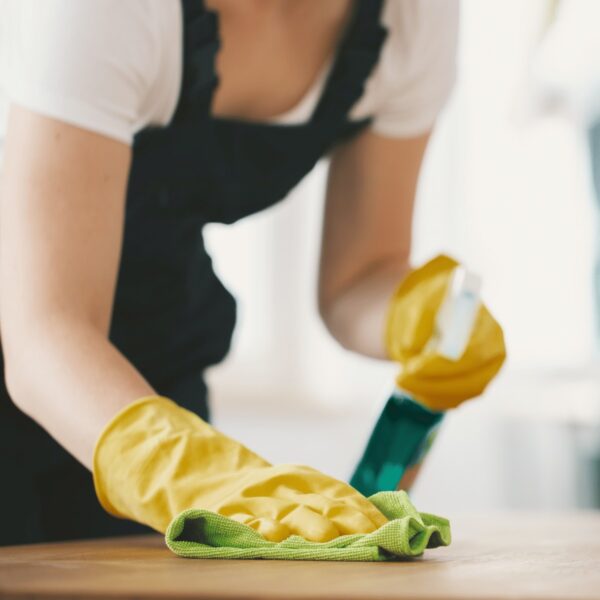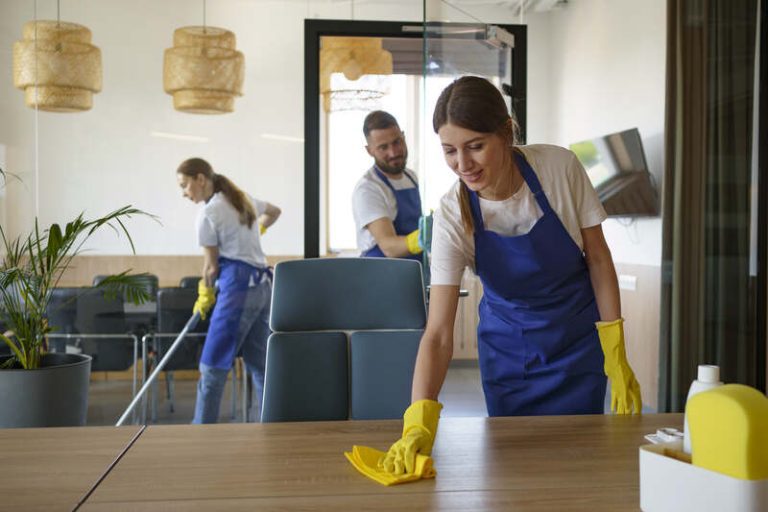If you’ve ever noticed a carpet cleaning smell after, you’re not alone. In that situation, you must be wondering what to do if carpet smells after cleaning?
In this article, we’ll find out why does carpet smell after cleaning and how to remove smell from carpet after cleaning.
From proper ventilation to natural cleaning products, we’ve got you covered. Learn how to get rid of smell after carpet cleaning and ensure your home smells fresh and clean here.
Why Do Carpets Smell After Cleaning?
The main causes of carpet cleaning smell include excess moisture, mould growth, and residues from pet urine that remain in the carpet fibres after cleaning.
Excess moisture in carpets can create a breeding ground for mould and mildew, which not only emits a musty smell but can also pose health risks. Proper drying techniques, such as using fans and dehumidifiers, are essential to prevent this issue.
Residues from pet urine, if not thoroughly removed during cleaning, can seep deep into the carpet padding and release odours over time.
How to Get Rid of Carpet Cleaner Smell?
Effectively removing carpet cleaning smell after requires a combination of natural solutions and proper ventilation techniques. Here’s a further explanation.
a. Proper Ventilation
Proper ventilation is crucial in preventing and eliminating carpet cleaner smell as it helps in the drying process and reduces excess moisture.
Aside from ventilation, using various tools and appliances like ceiling fans, dehumidifiers, and space heaters can greatly aid in faster drying and help remove the lingering moisture that could lead to unpleasant odours in carpets.
Ceiling fans help circulate air and speed up the evaporation process, while dehumidifiers pull excess moisture from the air. Space heaters, when used in conjunction with proper ventilation, can expedite the drying of carpets by providing additional warmth. Together, these methods create a more efficient drying environment, leaving your carpets fresh and odour-free.
b. Baking Soda
Bicarbonate of soda is an effective and natural solution for neutralising carpet cleaner smells and removing odours from carpet fibres.
Simply sprinkle bicarbonate of soda generously over the carpet surface, focusing on areas of high traffic and any specific spots that may have lingering odours. After applying the bicarbonate of soda, allow it to sit for at least 15-20 minutes, although leaving it overnight can yield even better results.
During this waiting period, the bicarbonate of soda works its magic by absorbing and neutralising the odours trapped within the carpet fibres. By letting it sit undisturbed, you give it ample time to penetrate and work its deodorising power.
Once the waiting period is over, thoroughly vacuum the carpet, ensuring that all areas where the bicarbonate of soda was applied are covered. A good vacuuming session will not only remove the bicarbonate of soda but also lift away the now-neutralised odours, leaving your carpet fresh and revitalised.
c. White Vinegar
White vinegar is another natural remedy that can help in eliminating carpet cleaner smell by neutralising odours and breaking down residues in the carpet fibres.
To make a vinegar solution, mix equal parts of white vinegar and water in a spray bottle. Shake well to ensure thorough mixing. Test a small, inconspicuous area of the carpet first to check for any adverse reactions. If safe, proceed by lightly spraying the solution onto the affected areas of the carpet.
Allow the solution to soak into the fibres for about 15-20 minutes. Afterwards, gently blot the area with a clean cloth to absorb excess moisture and lift the odours and residues. Let the carpet air dry completely before walking on it, and enjoy the refreshed, odour-free results.
d. Activated Charcoal
Activated charcoal is a powerful odour absorber that can help in removing persistent carpet cleaner smells by trapping and neutralising odours.
One effective way to use activated charcoal to manage odours in your home is to strategically place bowls of it around the room. Consider placing these bowls in areas where odours are particularly strong, such as near the source of the smell or in musty corners.
The porous structure of activated charcoal allows it to adsorb and neutralise a wide range of odours, making it an excellent solution for tackling smells caused by moisture, smoke, or cooking residues. By simply leaving the bowls of activated charcoal out in the open, you can help eliminate unwanted odours without the need for harsh chemicals or artificial fragrances.
e. Essential Oils
Essential oils offer a pleasant and natural way to mask and eliminate carpet cleaner smells, providing a fresh scent to the carpet and the room.
To effectively use essential oils to refresh your carpet, you can mix a few drops of your favourite oil with water in a spray bottle. This aromatic solution can then be generously sprayed onto the carpet, allowing the natural fragrance to permeate through the fibres, leaving a rejuvenating scent.
Alternatively, you can enhance the deodorising power by combining bicarbonate of soda and essential oils. Simply sprinkle the mixture liberally over the carpet, leave it for some time to absorb odours, and then vacuum it up, revealing a fresh and inviting atmosphere.
How Long Does Carpet Cleaner Smell Last?
Several factors can influence how long the carpet cleaner smell stays, such as the level of moisture present, the type of carpet, and the effectiveness of ventilation and drying methods.
Moisture retention plays a crucial role in determining how persistent the smell lingers in your carpet. Excessive moisture trapped within the fibres can lead to mould growth and musty odours. Carpet material also affects odour retention, as different fabrics absorb and retain smells differently.
Proper ventilation is essential to facilitate drying and prevent odours from becoming trapped in the fibres. Ensuring efficient drying processes, whether through air circulation or professional-grade equipment, can significantly reduce odour lingering. Professional cleaning services excel in optimising these factors, ensuring thorough cleaning, proper drying, and effective odour elimination.
How To Get Rid of Chemical Smell After Carpet Cleaning?
Removing the chemical smell after carpet cleaning involves using a combination of natural cleaning products, proper ventilation techniques, and sometimes the expertise of a professional cleaner.
a. Air Out the Room
Airing out the room is one of the simplest yet most effective ways to remove chemical smells after carpet cleaning by increasing ventilation and allowing fresh air to circulate.
By opening windows and using ceiling fans, you can help disperse the lingering chemical odours, facilitating a faster removal process. Proper ventilation plays a crucial role in not only reducing the intensity of the smells but also in expediting the overall air purification.
The circulation of fresh air helps in diluting and carrying away the noxious fumes, creating a healthier indoor environment. Without adequate ventilation, the chemicals’ odours may linger longer, posing potential health risks due to prolonged exposure. Hence, ensuring good airflow through proper ventilation mechanisms is essential for achieving a clean and odour-free space.
b. Use Natural Cleaning Products
Using natural cleaning products like white vinegar, bicarbonate of soda, and essential oils can help neutralise and remove chemical smells left after carpet cleaning.
Applying these natural products to the carpet is simple. Mix equal parts white vinegar and water in a spray bottle, spritz it over the affected area, and let it sit for a few hours before blotting it dry. For tougher odours, sprinkle bicarbonate of soda liberally, leave it overnight, and vacuum the next day.
The benefits of these ingredients go beyond just neutralising odours. White vinegar acts as a natural disinfectant, bicarbonate of soda absorbs moisture and odours, and essential oils add a pleasant scent. They also offer a safer alternative to chemical-based solutions, reducing the risk of harmful residues on your carpet and creating a healthier indoor environment.
c. Steam Clean the Carpet
Steam cleaning the carpet is an effective deep cleaning method that can help remove chemical smells by breaking down and extracting residues from the carpet fibres.
Using the power of high-temperature steam, this process not only eliminates dirt and grime but also sanitises the carpet, making it a great choice for households with pets or children.
The intense heat of the steam helps to kill bacteria and dust mites, which are common culprits of unpleasant odours.
To perform steam cleaning, a specialised steam cleaner or professional cleaning service is required, ensuring thorough extraction of odour-causing particles that may have penetrated deep into the carpet fibres.
Along with steam cleaning, incorporating other odour removal techniques such as using bicarbonate of soda or vinegar can further enhance the overall effectiveness of eliminating stubborn smells.
d. Hire a Professional Cleaner
Hiring a professional cleaner who is certified can ensure the efficient removal of chemical smells with their expertise and specialised equipment.
These cleaning professionals possess the knowledge and experience to address even the most stubborn odours that may linger in your home or office.
Therefore, if you are bothered that the carpet cleaning smell after problem does not go away, consider using a professional carpet cleaner.
These experts can identify the root cause of persistent odours and apply targeted solutions to eliminate them, leaving your carpets fresh and clean.
For the best results, choose TEKA Cleaning for your carpet cleaning needs. Our certified professionals use advanced equipment and techniques to ensure a thorough clean that effectively removes unpleasant smells and restores your carpets to their pristine condition.
Contact us today to book your carpet cleaning service. Give us a call on 01233 751 544 and let TEKA Cleaning handle the tough job of keeping your carpets in pristine condition.
Read also:










